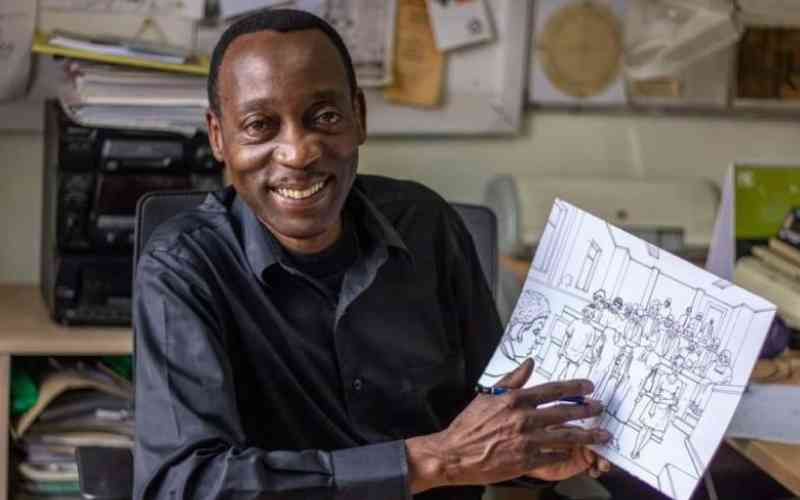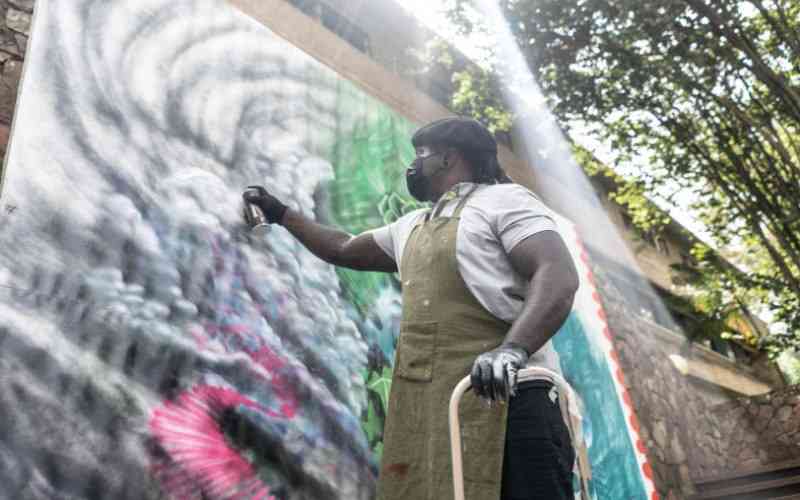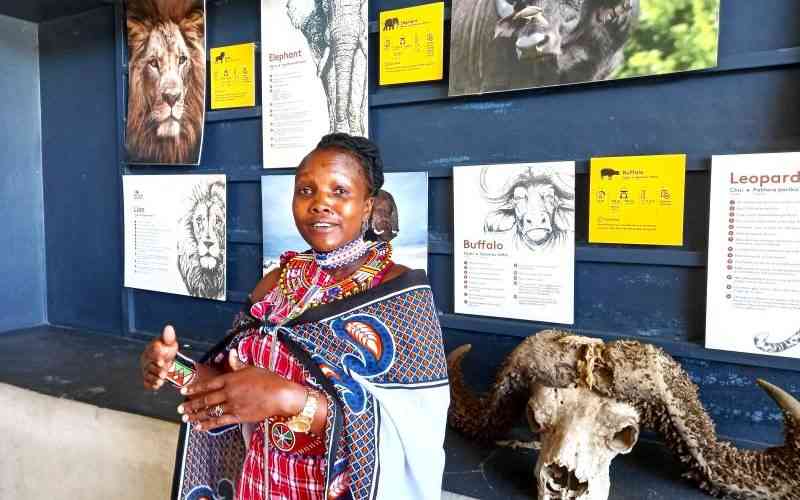During the recently concluded elections, Kenya Kwanza coalition promised the youth a basketful of goodies. This included providing support to the youth to exploit their talents in the arts and grow the economy. President William Ruto pledged to invest heavily in the creative industry as well.
That is what made us in the arts and crafts, design, fashion, film, video, photography, music and performing arts sub-sectors fall for the party. He observed that the creative sector is punching lower than its full potential yet it presents a myriad of opportunities that can make us tap into this "emerging high-growth areas of the world economy". As a graduate in the area of film, I am worried that the new government has not yet moved to harness the industry's vast potential.
In my view, the creative industry is far from realizing its potential, and more so the film industry. It faces a myriad of problems that the new administration has to deal with and free us to create and innovate. Compared to, say Nigeria, Kenya's film industry is a baby. What is evident, however, is that Kenyan film industry has made some growth, thanks to enthusiastic young people. But the legislative and policy framework is weak and does not support us.
Tapping into the industry
If the government is serious about tapping into this industry and growing the hustlers in the sector then I think it should establish a special fund and agency to spearhead the growth of film industry. As constituted, I think, Kenya Film Classification Board (KFCB) does not have the capacity to help develop the film industry. We know it more as the police unit of the sector; looking for mistakes that we make in order to punish us. We artists know it as a punitive agency; a "moral" police unit meant to harass us.
For Kenya to break into the big league there is need for investment into this industry. Most of the films that we make here are mostly low-budget and poor-quality films. We need an agency that will help artists attract big companies and donors to invest in the production of quality films. While many of us have the technical skills, we need support on entrepreneurship, writing proposals and raising funds. Let me accept that I was so raw after graduating from Kenyatta University on these aspects last year, until I landed an opportunity to work at Chams Media. This rare opportunity helped me learn. Many graduates are not that lucky to get such an opportunity for internship.
This lack of exposure is an impediment. It is only after coming out of university or college that you realize that you were exposed to very few formats of creating film. This ranges from the type of scripts and shooting techniques and equipment. For lack of exposure, some of us try as much as we can to make western type of films. This is wrong and does not help our culture and the evolution of our authentic brand. Like Nigerians, I think we need to tell Kenyan stories that carry our spirit to the world.
- Community health workers boost counties universal healthcare bid
- Inside UON's digital health facility
- Cabinet okays NHIF scrapping if four bills get MPs nod
- Ruto to launch UHC on Mashujaa Day
Keep Reading
Outdated notions
Those who have succeeded like the Indians and Nigerians have tapped from their culture and used film to market their nations. We need to produce films that challenge the notions sold about Kenyans and Africans generally by Hollywood. As my teacher Prof. John Mugubi always told us, we have to write back or shoot back.
When western films try to tell Kenyan or African stories for that matter, they mostly do not tell it well and always present the stereotypical character of Africa since time immemorial. Take for example the 1955 film Simba which presented an extremely inaccurate depiction of the Mau Mau in Kenya. That is why young filmmakers need training to counter these stereotypes and produce films to restore African dignity and pride. I have to salute young Kenyan filmmakers like Eastmond Mwenda, Osoo and Mwajuma Bahati who have depicted our story perfectly well in their films. The agency I am proposing should train filmmakers through workshops and seminars. The agency should also establish film studios in all counties of Kenya.
Many of us lack the necessary networks for marketing our products. I know of many friends who have good products in form of films but do not have advertising networks and their works never get to the public. They are not even aired by our local television stations. Now this is a very big problem in Kenya. There is need to work out a win-win formula with local stations. It is for the good of television stations in the country to support filmmakers. In short we need to evolve a structure for advancement of film. Other countries have done it. We can do it. It is good that the Kenyan government has started offering discounts to film makers when it comes to shooting in certain locations. This is not enough.
I was delighted when Governor Sakaja encouraged upcoming artist and filmmakers to shoot in Nairobi City free of charge. He lifted the burn on shooting in certain locations. This is a good start for the Governor. The wasani wa filamu have a friendly supporter in the governor. This is a huge win for Nairobi based film makers.
I am of the firm belief that income from film industry in Kenya can surpass income from tea in three years if harnessed. We can do so much and create jobs. We are in a marathon that we have to win. The journey ahead is long, but with support, we will win.
- Nneka Egara is a prospective Masters student of Film and Television Production at Coventry University, United Kingdom.
 The Standard Group Plc is a multi-media organization with investments in media platforms spanning newspaper print
operations, television, radio broadcasting, digital and online services. The Standard Group is recognized as a
leading multi-media house in Kenya with a key influence in matters of national and international interest.
The Standard Group Plc is a multi-media organization with investments in media platforms spanning newspaper print
operations, television, radio broadcasting, digital and online services. The Standard Group is recognized as a
leading multi-media house in Kenya with a key influence in matters of national and international interest.











